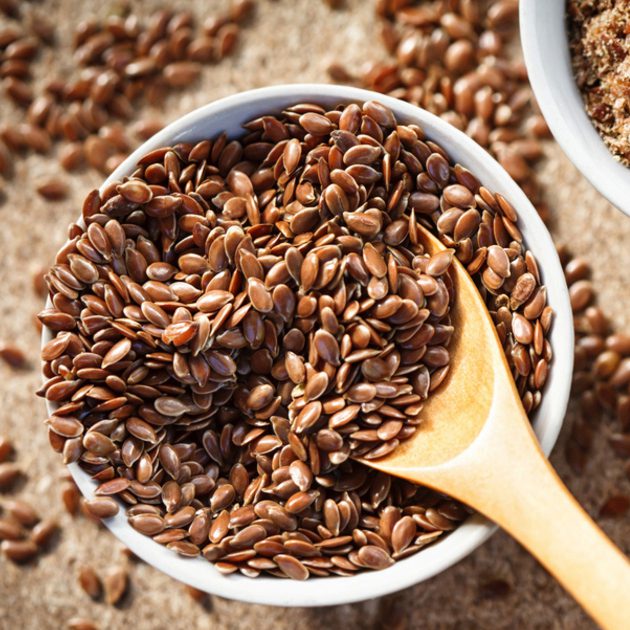5 Health benefits of Flax Seeds

Contents
- 1 5 Health Benefits of Flax Seeds You Should Know
- 1.1 🧪 Nutritional Information (Per 1 Tablespoon / 7 grams of Ground Flax Seeds):
- 1.2 1. Rich Source of Omega-3 Fatty Acids
- 1.3 2. High in Dietary Fiber
- 1.4 3. Packed with Lignans – A Powerful Antioxidant
- 1.5 4. May Help Lower Cholesterol Levels
- 1.6 5. Supports Blood Sugar Control
- 1.7 💡 Bonus Tips for Including Flax Seeds in Your Diet:
- 1.8 📝 Final Thoughts
5 Health Benefits of Flax Seeds You Should Know
Flax seeds, also known as linseeds, have been consumed for thousands of years for their nutritional and medicinal benefits. These tiny, nutty-flavored seeds are a powerhouse of nutrients and are gaining popularity as a superfood in modern diets. Whether you’re blending them into smoothies, sprinkling them on your yogurt, or baking them into muffins, flax seeds can be an easy yet powerful addition to your daily routine.
In this article, we’ll explore five science-backed health benefits of flax seeds that make them worth including in your diet.
🧪 Nutritional Information (Per 1 Tablespoon / 7 grams of Ground Flax Seeds):
| Nutrient | Amount |
|---|---|
| Calories | ~37 kcal |
| Protein | 1.3 grams |
| Carbohydrates | 2 grams |
| Dietary Fiber | 1.9 grams |
| Total Fat | 3 grams |
| – Saturated Fat | 0.3 grams |
| – Polyunsaturated Fat (including ALA) | 2.0 grams |
| – Monounsaturated Fat | 0.5 grams |
| Omega-3 Fatty Acids (ALA) | ~1.6 grams |
| Calcium | 18 mg |
| Magnesium | 27 mg |
| Phosphorus | 45 mg |
| Potassium | 57 mg |
| Iron | 0.4 mg |
| Lignans | ~85–300 mg (varies by variety) |
🔎 Note: Nutritional values may vary slightly depending on the brand or source.
1. Rich Source of Omega-3 Fatty Acids
Flax seeds are one of the best plant-based sources of omega-3 fatty acids, especially alpha-linolenic acid (ALA). Omega-3s are essential fats that your body cannot produce on its own, so you must get them from your diet.
Health benefits of ALA:
-
Supports heart health by reducing inflammation and lowering blood pressure.
-
Helps reduce the risk of cardiovascular disease.
-
Promotes brain health and cognitive function.
For those who don’t consume fish or other marine sources, flax seeds offer a valuable alternative.
2. High in Dietary Fiber
Flax seeds are loaded with soluble and insoluble fiber, both of which play crucial roles in digestive health.
Fiber benefits include:
-
Improving bowel regularity and preventing constipation.
-
Supporting healthy gut bacteria.
-
Controlling blood sugar levels by slowing digestion.
-
Aiding in weight management by promoting a feeling of fullness.
Just one tablespoon of ground flax seeds contains about 2 grams of fiber, making it an easy way to increase your daily fiber intake.
3. Packed with Lignans – A Powerful Antioxidant
Flax seeds are one of the richest sources of lignans, a type of plant compound with antioxidant and estrogenic properties. They contain up to 800 times more lignans than other plant foods.
Lignans may help:
-
Protect cells from oxidative stress and free radical damage.
-
Reduce the risk of hormone-related cancers like breast and prostate cancer.
-
Balance hormone levels in the body.
Including flax seeds in your diet can offer a natural and plant-based way to boost your antioxidant intake.
4. May Help Lower Cholesterol Levels
Several studies suggest that consuming flax seeds can help reduce cholesterol levels, especially LDL (bad) cholesterol.
A study published in the journal Nutrition & Metabolism found that participants who consumed flax seed powder daily for three months had significant reductions in total and LDL cholesterol.
How flax helps:
-
Soluble fiber binds to cholesterol-rich bile and helps remove it from the body.
-
Lignans and ALA contribute to better lipid profiles and heart health.
This makes flax seeds a heart-friendly food, especially for people managing cholesterol levels.
5. Supports Blood Sugar Control
For people with type 2 diabetes or at risk of developing it, flax seeds can be a helpful addition to the diet.
The soluble fiber in flax slows the absorption of sugar in the bloodstream, which helps in:
-
Preventing spikes in blood sugar levels.
-
Improving insulin sensitivity over time.
-
Managing overall glycemic control.
In fact, a study published in the Journal of Dietary Supplements showed that people who added flaxseed powder to their diet experienced improved blood sugar levels and insulin resistance.
💡 Bonus Tips for Including Flax Seeds in Your Diet:
-
Always grind flax seeds before eating to ensure nutrient absorption.
-
Store in an airtight container in the refrigerator to prevent spoilage.
-
Add to smoothies, oatmeal, baked goods, yogurt, or sprinkle on salads.
📝 Final Thoughts
Flax seeds may be small, but their health benefits are enormous. From supporting heart health and digestion to balancing hormones and managing blood sugar, they are a versatile and nutrient-rich superfood. By incorporating just 1–2 tablespoons into your daily routine, you can reap a wide range of health rewards.
As with any dietary change, consult a healthcare professional if you have underlying health conditions or are on medication.
Stay healthy, stay natural — and let flax seeds do their magic!
